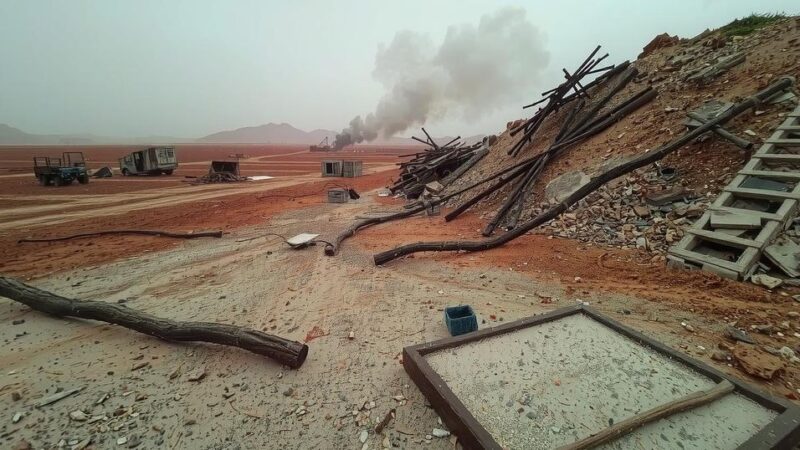Congressional leaders have decided to postpone discussions on federal funding for Hurricane Helene relief until after the elections, citing adequate current government resources and the potential political fallout from election-time debates over disaster funding. Historical conflicts surrounding disaster aid highlight the complexities and political risks involved in such funding discussions.
Congressional leaders opted to postpone discussions regarding the allocation of federal funds for relief efforts following Hurricane Helene until after the upcoming elections. Citing practical reasons for this delay, Speaker Mike Johnson and his colleagues indicated that the government currently possesses adequate resources to navigate the immediate weeks post-hurricane while allowing time for a thorough assessment of the impending needs. This decision comes in light of the historical challenges surrounding disaster funding debates, particularly when elections approach, which often lead to politically charged disputes. Historically, funding discussions following major disasters such as Hurricane Katrina in 2005 and Hurricane Sandy in 2012 have highlighted significant divisions within Congress. Additionally, controversies surrounding aid for Western wildfires and Puerto Rico in 2019 further showcased the potential political fallout from such debates. Despite the devastation primarily impacting Republican-majority regions, anticipated calls from some conservatives for spending cuts to balance the aid requests could exacerbate partisan tensions. The timing of disaster relief funding, especially in an election year when fiscal restraint is a key Republican message, presents a complicated political landscape. The consequences of proceeding with funding discussions could risk painting Republicans as inconsistent in their fiscal policies, should they seek large-scale federal aid for their constituencies while simultaneously opposing spending in other contexts. Thus, it appears prudent for Congress to defer these contentious funding debates until after the election cycle concludes.
The article discusses the decision of congressional leaders to delay discussions on funding for Hurricane Helene relief efforts until after an election. This decision is rooted in the practical consideration that the government has sufficient funds to cover immediate needs while evaluating the long-term requirements, as well as the strategic avoidance of politically contentious debates that typically arise around disaster funding, especially close to election time. Historical context is provided by citing past political conflicts over disaster aid that highlights the challenges faced in Congress regarding such funding.
In summary, the decision to delay the debate over disaster funding for Hurricane Helene not only reflects a careful assessment of current fiscal capabilities but also a strategic choice to avoid politically fraught discussions prior to the election. The historical backdrop of congressional conflicts over disaster aid serves to underscore the potential perils involved in addressing such funding matters at this time, particularly as it relates to perceptions of Republican fiscal policies.
Original Source: www.nytimes.com







